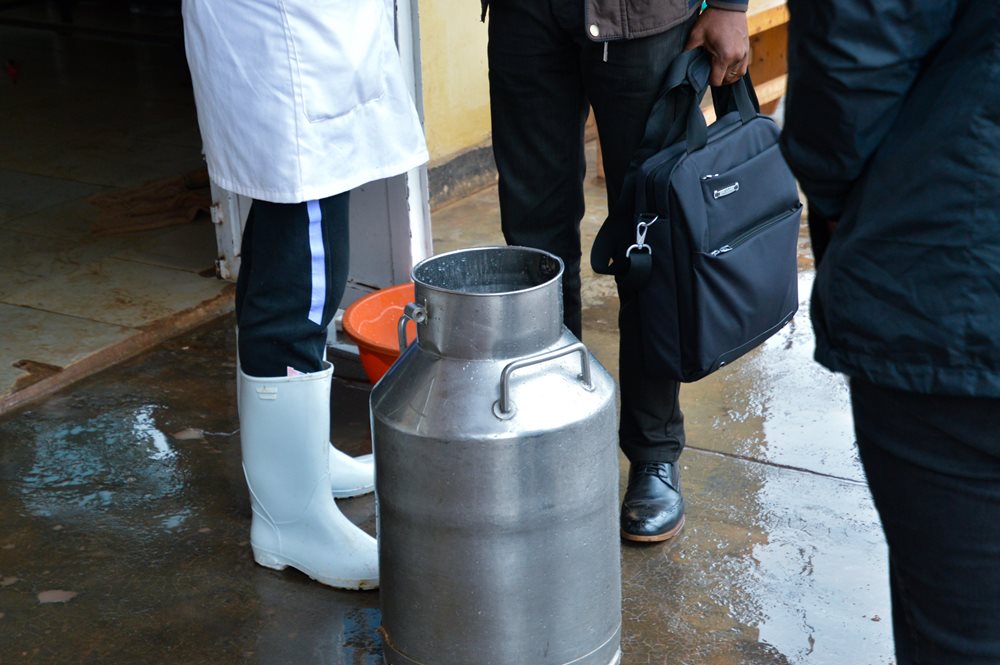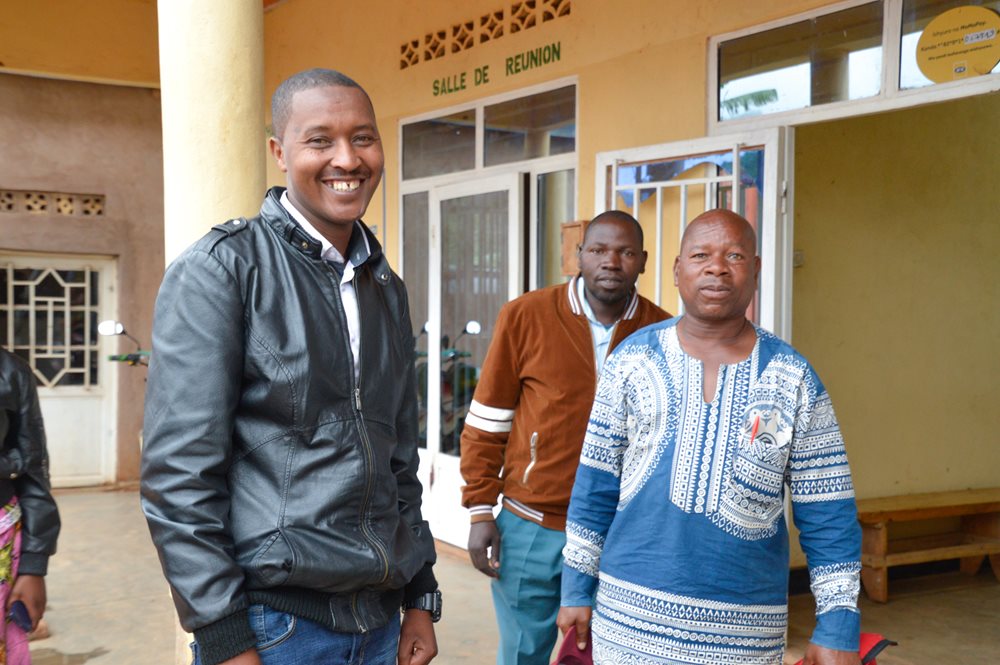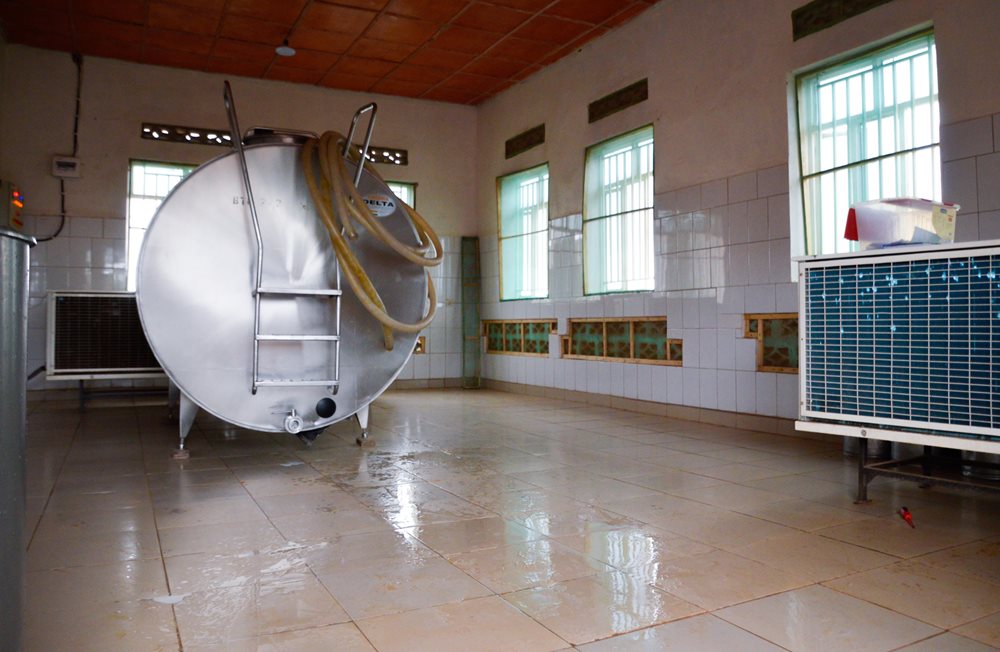As milk consumption increases within and beyond Kigali’s milk bars, consumers in Rwanda are increasingly expecting shelves to be stocked with a product that’s fresh and safe for consumption. Meanwhile, many Rwandans depend on the dairy business to sustain their livelihoods. Against this backdrop, learn how a USAID activity is supporting smallholder dairy farmers by strengthening one of the key institutions that enable them to do business: cooperatives.
Milk holds a special place in Rwanda’s food scene, and it’s attracting the attention of international media. A recent
New York Times article touts the unique phenomenon of Kigali’s milk bars, where dairy afficionados can be found congregating over tall frosty glasses or steaming hot mugs of milk — served fresh or fermented.
As milk consumption increases within and beyond Kigali’s milk bars, consumers in Rwanda are increasingly expecting shelves to be stocked with a product that’s fresh and safe for consumption. Meanwhile, with an estimated
62 percent of Rwanda’s workforce employed in the agriculture sector, many Rwandans depend on the dairy business to sustain their livelihoods. Against this backdrop, supporting Rwanda’s burgeoning dairy sector is critical for consumers, producers, and Rwanda’s broader sustainability goals.
Cooperatives Are Key: Smallholder Dairy Farmers Rely on Them
Within this context, the USAID Cooperative Development 4 Activity (CD4) is making strides to support smallholder dairy farmers by strengthening one of the key institutions that enable them to do business: cooperatives. Cooperatives play a fundamental role in Rwanda’s agriculture sector — they allow smallholder farmers to operate beyond subsistence farming, improving their incomes and working towards collective business goals. But, many cooperatives lack the resources or know-how to operate within Rwanda’s cooperative legal framework. That’s where training, resourcing, and capacity building come into play: CD4 and other development programs are playing a key role in making sure that cooperatives can sustain their members for the long run.
 On a rainy day in March 2023, BTK dairy cooperative members gather outside their milk collection center in Rwanda's Gicumbi district. The center is one of two sites where BTK members collect and store their milk before selling it.
On a rainy day in March 2023, BTK dairy cooperative members gather outside their milk collection center in Rwanda's Gicumbi district. The center is one of two sites where BTK members collect and store their milk before selling it.
Building Hard Skills: Business Training for Dairy Cooperatives
BTK is a cooperative in Rwanda’s Gicumbi district that collects and sells milk produced by its members. It’s just one of the several dairy cooperatives that CD4 is working with to boost their business. BTK was registered in 2013 and now has more than 70 members. When CD4 first partnered with the cooperative in 2019, it was still struggling with governance, management, high transaction costs, budgeting, and reporting. CD4 provided training sessions in these areas to boost their business skills, which has helped them increase their revenue. As of 2022, the business saw nearly a 40 percent increase in revenue since 2019.
Christine, BTK’s accountant, shared that the financial management training module was particularly helpful for the cooperative: “it helped us keep good records and keep our [financial] supporting documents in order.” Through the activity, BTK also received a computer and a printer, making financial management and record keeping much more straightforward than it was before the partnership. “It’s provided us with many different tools to help us with our daily tasks and to save us time,” said Prudence, a BTK manager.
Keeping Up With Customer Expectations: Prioritizing Milk Quality
Before partnering with CD4, BTK did not have access to electricity, which often compromised the quality of their milk. With a grant from CD4, the cooperative was able to purchase a milk cooling tank for their milk collection facility, which holds 4,000 liters of milk. Prudence shared that they are no longer noticing as much milk being spoiled with the new equipment.
They also were able to establish a veterinary supply shop in 2021, which has helped them care for their dairy cows, further improving the quality and supply of their product.
 After a meeting at BTK's collection center, members show their visitors around their facility.
After a meeting at BTK's collection center, members show their visitors around their facility.
Future Aspirations: A Glass Half Full
Despite these successes, the road has not always been easy for BTK. In 2021, revenues suffered due to the pandemic and skyrocketing fuel prices. What’s more, one of the members, Jean, explains that some of their members’ cows are aging and that they sometimes suffer from power outages and could benefit from a generator.
Still, the cooperative members seem optimistic about their future. They are predicting an increase in revenue again this year, and they are eager to participate in more business management trainings. Although they don’t have concrete plans to do so, Jean also mentions an interest in creating value-added dairy products— such as cheese production — which could help extend the shelf life of their product. The vice president points out their vision, which is prominently hanging on a large banner behind them: “The activity has helped give us a vision.”
 This milk cooling tank at BTK's collection center can hold up to 4,000 liters of milk,. It is one of two tanks that they have at their two collection sites.
This milk cooling tank at BTK's collection center can hold up to 4,000 liters of milk,. It is one of two tanks that they have at their two collection sites.